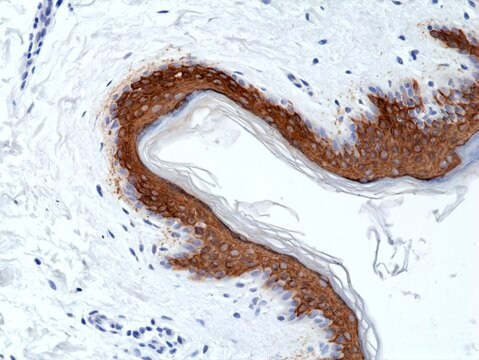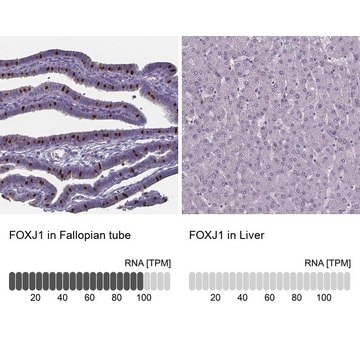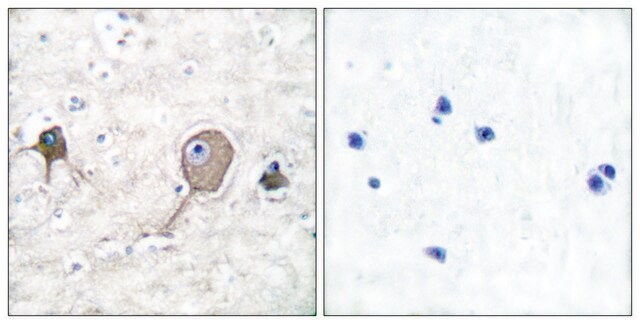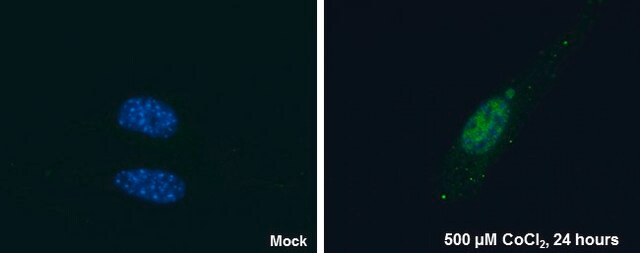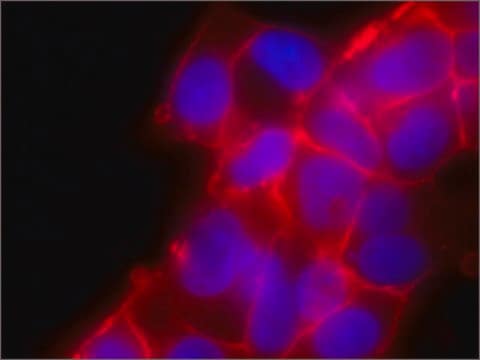WH0006623M1
Anti-γ-Synuclein (SNCG) Antibody
mouse monoclonal, 2C3
Sinônimo(s):
Anti-BCSG1, Anti-SR, Anti-synuclein, gamma (breast cancer-specific protein 1)
Selecione um tamanho
R$ 4.090,00
Selecione um tamanho
About This Item
R$ 4.090,00
Produtos recomendados
Nome do produto
Monoclonal Anti-SNCG antibody produced in mouse, clone 2C3, purified immunoglobulin, buffered aqueous solution
fonte biológica
mouse
Nível de qualidade
conjugado
unconjugated
forma do anticorpo
purified immunoglobulin
tipo de produto de anticorpo
primary antibodies
clone
2C3, monoclonal
Formulário
buffered aqueous solution
reatividade de espécies
human
técnica(s)
indirect ELISA: suitable
western blot: 1-5 μg/mL
Isotipo
IgG2aκ
nº de adesão GenBank
nº de adesão UniProt
Condições de expedição
dry ice
temperatura de armazenamento
−20°C
modificação pós-traducional do alvo
unmodified
Informações sobre genes
human ... SNCG(6623)
Categorias relacionadas
Descrição geral
Synuclein gamma (SNCG) is a breast cancer specific gene. SNCG is highly expressed in malignant cancer cells and neuronal cells. SNCG gene is located on human chromosome 10q23.2. SNCG is a member of the brain protein synuclein family.
Imunogênio
Sequence
KTKQGVTEAAEKTKEGVMYVGAKTKENVVQSVTSVAEKTKEQANAVSEAVVSSVNTVATKTVEEAENIAVTSGVVRKEDLRPSAPQQEGEASKEKEEVAEEAQSGGD
Aplicação
Ações bioquímicas/fisiológicas
forma física
Informações legais
Não está encontrando o produto certo?
Experimente o nosso Ferramenta de seleção de produtos.
Código de classe de armazenamento
10 - Combustible liquids
Ponto de fulgor (°F)
Not applicable
Ponto de fulgor (°C)
Not applicable
Equipamento de proteção individual
Eyeshields, Gloves, multi-purpose combination respirator cartridge (US)
Escolha uma das versões mais recentes:
Certificados de análise (COA)
Não está vendo a versão correta?
Se precisar de uma versão específica, você pode procurar um certificado específico pelo número do lote ou da remessa.
Já possui este produto?
Encontre a documentação dos produtos que você adquiriu recentemente na biblioteca de documentos.
Active Filters
Nossa equipe de cientistas tem experiência em todas as áreas de pesquisa, incluindo Life Sciences, ciência de materiais, síntese química, cromatografia, química analítica e muitas outras.
Entre em contato com a assistência técnica